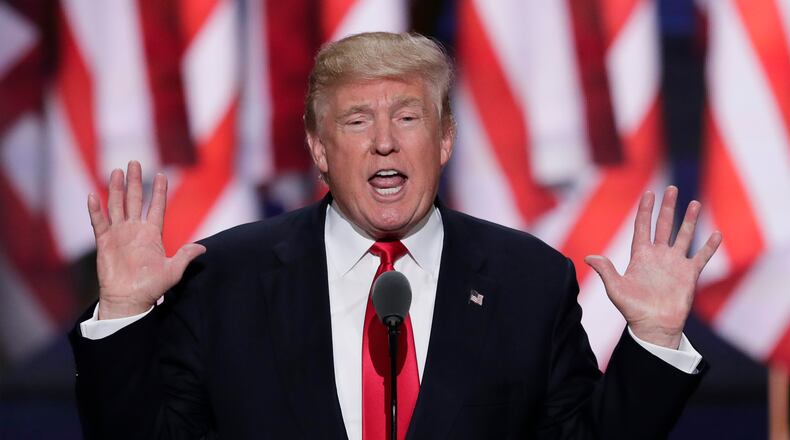CLEVELAND -- A lot of the initial reaction I saw to Donald Trump's speech here Thursday night was that it was dark, fear-mongering, too negative about the state of the country. And in a lot of ways, that's true. But to understand why, I present two pieces of evidence. First is how Americans feel about the direction of the country, as measured by a large series of opinion polls:
The current figure -- with more than two-thirds saying we're heading in the wrong direction, and not quite a quarter saying the right direction -- is the worst in almost 4.5 years, which itself was the highest since late 2008. In 2008, that level of dissatisfaction was enough to force a change in partisan control of the White House. Had Barack Obama's re-election been in November 2011 instead of November 2012, the discontent probably would have been enough to push it back again. News flash: If the opposition party sees those kinds of numbers, it isn't going to go against voters and tell them everything's fine and dandy. It's going to campaign in a way that reflects that widespread -- and steadily rising -- sentiment of disgust.
And why might that sentiment be so strong, and so steadily rising? Here's an idea:
You think?
The news lately has been relentlessly negative. Working backward: police shot and killed in Baton Rouge, an attempted coup in Turkey, scores of innocents run over in Nice, police slain in Dallas, black men killed by cops in St. Paul and Baton Rouge -- and that's just in the past two weeks. There were many fears of violence in Cleveland this week, which thankfully did not come to pass. On Thursday, 10 people were arrested in connection with a planned terror attack at the Rio Olympics. That's a lot of death and hate and anger and sadness for people to process, and it has been going on this way for a while. Add to that the constant reports of how the economy isn't working for most people, how wages have been stagnant, etc. It's no wonder people think things are going badly.
We would like to think those running for an office such as the U.S. presidency would pitch a more optimistic view of the future, of empowerment rather than paternalism, of inclusiveness rather than closed doors. But "hope and change" has been tried and found wanting, and the voting public seems in little mood to entertain a sunny disposition. Face it: None of the final four candidates this year (Trump, Ted Cruz, Hillary Clinton and Bernie Sanders) is what you'd call a happy warrior. That group basically includes three populists and a technocrat who succeeded in spite of herself.
Now, are our problems as intractable as we believe them to be? After all, if things aren't as sunny as in 1984 or 1996, they aren't as gloomy as in 1932 either.
Well, maybe not to those of us who live in circumstances that aren't as dark and desperate as Trump outlined Thursday. But plenty of others do live where there's generational poverty, rampant joblessness and criminality, declining standards of living, and little hope for anything different in the near future. Those were the people Trump was trying to reach, I think. And simply being acknowledged might seem like optimism compared to being ignored.
We'll have to wait to see if it worked. And I've long since been on record saying I don't think Trump has the right solutions to those problems, a position that didn't change Thursday night. I'll get back to that soon enough. But for now, it's worth pointing out Trump is reflecting his audience's beliefs more than shaping them. That isn't really leadership, not on its own, but it has proven so far to be good politics.
About the Author
The Latest
Featured



